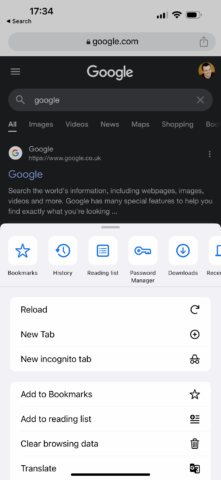There are already other web browsers on iPhone, right? Sort of…
Reports suggest iOS 17 will bring big changes to iPhone and iPad, driven by regulator demands. Key Apple decisions deemed to be holding back competition may result in official sideloading and alternative App Stores. And also alternative web browser engines.
You might be baffled by this. Haven’t there long been alternative web browsers for iPhone, from heavy hitters like Google Chrome to indie efforts like Dolphin? Yes, but there’s a touch of smoke and mirrors with them all.
Apple rules mean these browsers are based on WebKit – the same engine that underpins Safari. No comparable platform has a similar limitation – for example, web browsers on Android can use their own engines. Apple’s competitors argue banning third-party web browser engines stifles innovation. It can also cause consistency issues for users – although Chrome for iPhone might look like and sync with the desktop browser, it doesn’t always work like it when it comes to layout and site compatibility.
That could all be about to change.

Chrome for iPhone
New iPhone rules. New web browser engines
According to The Register, Google has already started working on an iPhone web browser that uses its own engine. It’s gearing up for full Chrome on iPhone. And should Apple’s rules change, the floodgates will open, with fully native versions of Microsoft Edge, Mozilla Firefox, Opera, and more.
But what will this mean for you, beyond the previously mentioned consistency issues? On the face of it, not much. Most iPhone users stick with Safari, because it’s deeply baked into Apple’s ecosystem. And for those who don’t, alternative browsers already allow access to the really important stuff: your bookmarks, browsing history, and pages open on other devices.
However, lifting the browser ban should spur Apple on to ensure Safari is the best browser it can be. If competing browser engines prove to be faster, more effective, and more compatible with current web standards and streaming services, that’s a big threat to Apple. It could quickly lose its foothold in mobile browsing – and with it, Safari’s wider relevance.
Whether any of this happens remains to be seen. But it’s possible 2023 could be the most interesting year for iPhone web browsers since Steve Jobs announced the original Safari for iPhone, which brought full internet to mobile for the first time.

